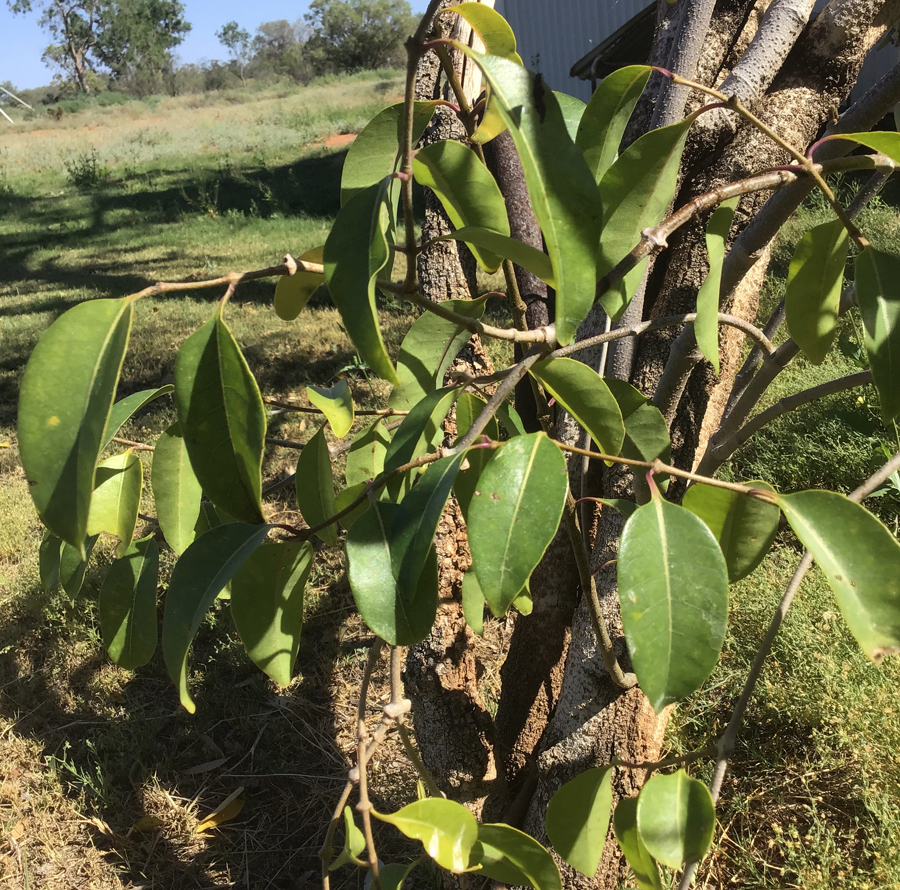
Property owners and land managers in north west NSW have been urged to check their properties for the toxic invasive weed, rubber vine (Cryptostegia grandiflora), which is now being eradicated from four sites near Wanaaring, Yantabulla and Weilmoringle.
NSW Department of Primary Industries (DPI) State Priority Weeds coordinator, Nicola Dixon, said people in the Bourke and Brewarrina Shire Council and unincorporated areas should check homestead gardens, yards, sheds, rivers and creeks for the prohibited weed.
“We have found rubber vine which was planted in homestead gardens decades ago, triggering a substantial surveillance effort as plants could survive anywhere there is a water source and could have spread far from the original sites,” Ms Dixon said.
“Please contact the NSW DPI Biosecurity Helpline on 1800 680 244 for assistance and do not attempt to treat or dispose of this weed yourself.”
NSW DPI is working with Western Local Land Services and local councils to detect and eradicate rubber vine.
As part of an ongoing 46,000 square kilometre survey of north-west NSW, between Tibooburra and the Narran River, 191 properties have been inspected for rubber vine.
Rubber vine is a multi-stemmed shrub which can scramble up to 30 metres high in tree canopies or grow unsupported to three metres, forming dense thickets with dark green, glossy leaves. Its flowers are trumpet-shaped, up to five centimetres long and wide with five light-purple, pink or white petals.
The weed smothers and kills other plants, invades pastures, waterways and natural areas and makes livestock movement and mustering difficult. It can reduce native plant and animal numbers and the water quality of streams.
All parts of the plant are poisonous to people and livestock if eaten. Sap from the plant irritates skin and can cause burning, rashes and blisters. Dust from dried plants can cause irritation to the throat, nose and eyes.
Rubber vine is a Weed of National Significance which poses a significant biosecurity risk and is listed as prohibited matter in the NSW Biosecurity Act 2015.
Information about rubber weed is available from the DPI website.







